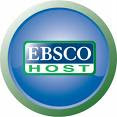 The Brooklyn Law School Library database page has an alphabetical listing of dozens of databases with which many library patrons are unfamiliar. Most are law related although some are multi-disciplinary. The full range of databases available through EBSCOhost (a search system made accessible to the BLS community by subscription through the library) provides full text searches and abstracts of magazines, newspapers and reference books in a variety of subject areas, updated on a daily basis.
The Brooklyn Law School Library database page has an alphabetical listing of dozens of databases with which many library patrons are unfamiliar. Most are law related although some are multi-disciplinary. The full range of databases available through EBSCOhost (a search system made accessible to the BLS community by subscription through the library) provides full text searches and abstracts of magazines, newspapers and reference books in a variety of subject areas, updated on a daily basis.
Included in the range of EBSCO products are these databases briefly described by content.
- Academic Search Premier
- Business Source Premier
The industry’s most popular business research database features the full text for more than 2,150 journals. Full text is provided back to 1886, and searchable cited references back to 1998. - ERIC
The world’s largest source of education information, it contains more than 950,000 abstracts of documents and journal articles on education research and practice. - Funk & Wagnalls New World Encyclopedia
The multidisciplinary encyclopedia offers more than 25,000 articles on a wide variety of topics. This source provides full text for all articles. - Health Source: Nursing/Academic Edition
This database has full text articles from academic and/or professional sources and provides 600 scholarly full text journals, including more than 450 peer-reviewed journals focusing on many medical disciplines. Also featured are abstracts and indexing for more than 850 journals, covering nursing and allied health. - MasterFILE Premier
This database covers diverse topics including general information, business issues, health and multicultural materials. It includes an image collection with photos of people, places, natural science photos, historical photos, maps, and flags. - MEDLINE
The world’s most comprehensive source of full text for medical journals, MEDLINE provides full text for more than 1,470 journals. - Newspaper Source
This source provides cover-to-cover full text for 185 national (U.S.) and international newspapers, including Christian Science Monitor, USA Today, The Washington Post, The Washington Times, The Times (London), Toronto Star, and others. - The Philosophers Index
This database provides indexing and abstracts of “scholarly research published in journals and books, including contributions to anthologies and book reviews. It contains research published since 1940 including nearly 570 journals from 43 countries with content representing a variety of languages”. - Professional Development Collection
This collection includes full text for the Chronicle of Higher Education, Educational Leadership, Journal of Education, Journal of Higher Education, Theory Into Practice, and nearly 520 high quality education journals. - Regional Business News
The source provides full text for more than 80 regional US and Canadian business publications (including titles from Crain Communications). - The Serials Directory
This database contains nearly 212,000 U.S. and international titles, including newspapers; data from nearly 108,235 publishers worldwide, including e-mail and Internet addresses.
“The world’s largest scholarly, multi-disciplinary full textdatabase” includes indexing and abstracts for additional periodicals.
EBSCOhost has created these tutorials to help make searching the databases easier:
- Basic Search
A concise guide to the most popular EBSCOhost features. (3.4 minutes) - Advanced Search
Learn about Advanced Search features, from limiters and expanders, the ability to save searches, set up Search and Journal Alerts, search Publications and browse Indexes, to how to manage search results in your personalized My EBSCOhost folder. (4 minutes) - Create Search and Journal Alerts
Search and Journal Alerts save valuable research time, and can be set up to provide automatic notification to any email address(es) you specify, whenever new results become available. (3 minutes)


 On the subject of animal rights, the BLS Library has added to its collection a number of interesting items. See
On the subject of animal rights, the BLS Library has added to its collection a number of interesting items. See  See also
See also  On the subject of forfeiture, the BLS Library recently added to its collection
On the subject of forfeiture, the BLS Library recently added to its collection 
 The Brooklyn Law School Library’s collection has
The Brooklyn Law School Library’s collection has  The BLS Library has recently added to its collection a new title
The BLS Library has recently added to its collection a new title  Included in the BLS Library databases is the Center for Computer-Assisted Legal Instruction (CALI) which hosts computer-mediated legal instruction and lessons on a variety of legal topics. On the topic of civil procedure, standing and motions for intervention, see the CALI lesson called
Included in the BLS Library databases is the Center for Computer-Assisted Legal Instruction (CALI) which hosts computer-mediated legal instruction and lessons on a variety of legal topics. On the topic of civil procedure, standing and motions for intervention, see the CALI lesson called